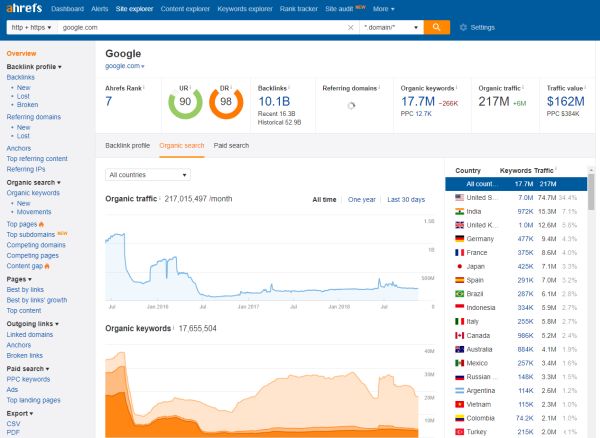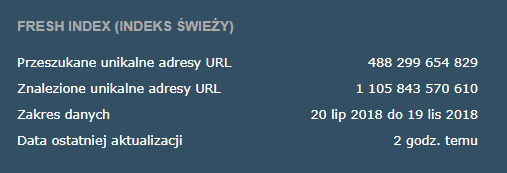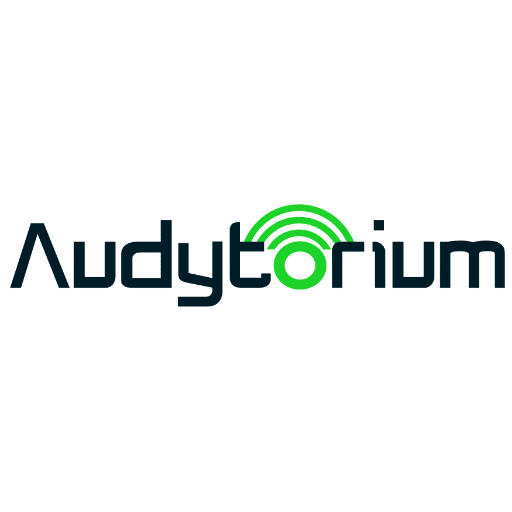In recent years, we’ve been hearing a lot about Big Data in e-commerce. And while most of us are roughly familiar with the term, few know the answer to the question: how can I use Big Data in SEO for my e-commerce?
The days of manual data acquisition in the SEO industry are thankfully long gone. Unnoticeably, agencies and freelancers (though still not all) have moved from tedious manual re-keying or scraping of data to tools that do it for us.
Of course, it is good to have your own database and be able to use it exclusively. However, the scale of data that a single individual or agency is able to collect is only a measly fraction of what the biggest players in the SEO tools market know about the Internet, sites, users and links.
These are not empty words. For example, the robots of Ahrefs – one of the SEO harvesters – are some of the most active crawlers on the web; just look at the numbers below.

Spis treści
SEO Big Data using Ahrefs as an example
- More than 4 million pages crawled every minute
- 38,000 processors serving data centers
- More than 27 petabytes of data on 2,500 servers
- Nearly 8 billion keywords in the database
- Nearly 130 trillion rows in database
The numbers are impressive, aren’t they? This is just one tool; others are also trying not to fall behind. Here an example of an index provided by Majestic:

Who are these tools designed for?
The answer is simple: for anyone who can use them creatively. Creatively.
Such tools make this data available for a fee, while offering in-depth analysis and export capabilities. At the Auditorium, we use more than 10 such tools that collect data on a huge scale, as well as a dozen smaller ones that are useful in unusual situations and industries.
It is surprising how little is written and talked about in the industry media about the power these tools offer. In skilled hands and with a little imagination, the data they make available allows you to perform almost any kind of analysis needed for a successful SEO campaign. They can also do much more.
Not to be pigeonholed, I propose to look at just two basic functionalities of modern SEO tools, based on the collection and processing of huge amounts of information.
Creative application of Big Data in SEO
Case 1
SEO tool functionality:
The tool shows the keywords that the URL ranks for.

Common use:
👌analyzing your site’s keywords
How do you get the most out of this data?
💡analysis of competitors’ activities and strategies
💡 content gap analysis
💡 Reverse content gap analysis – strengthening your niche
💡 Error catching and alerts
💡 catching trends
💡 Capture and monitor duplication phenomenon
💡 long-tail phrases
💡semantic approach to optimization (e.g., topic clustering).
Case 2
SEO tool functionality:
The tool shows inbound links for a specific URL.

Common use:
👌analyze your site’s link profile
How do you get the most out of this data?
💡 Finding easy topics (e.g., pages ranking with competitors without links).
💡 Analyze the SEO activities of competitors.
💡analysis of historical marketing activities of competitors
💡 Catching errors (e.g. links to non-existent content).
💡 Neglecting PR
💡keeping an eye on possible spam attacks (e.g. on forums)
Big data costs money

Big Data costs money, and these costs are not small. However, for the agency, the cost is probably the best possible investment. The data downloaded from the described tools not only skyrocket the quality of services provided, but also improve and speed up the work.
At Auditorium, we also use API services to feed data to our internal applications for audits and SEO activities. Here, too, the costs are skyrocketing and already the lowest API plan, for example, in the case of Ahrefs, costs $500 per month.
I have the data. What’s next?
Data is not everything, of course. They need to be skillfully read, analyzed and, above all, used. Just as a typewriter and good intentions are not enough to create a Nobel Prize-winning novel, it takes an artist or at least a skilled craftsman to turn available resources into a successful SEO campaign.


